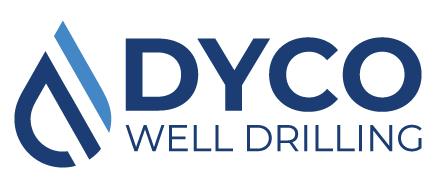Water is a basic necessity that we all need to survive. However, accessing it can be a challenge, especially in areas where there are no municipal water supply systems. In such cases, well drilling is often the most practical solution to meet the water needs of a household or a community. However, drilling a well is not something you should take lightly, as it requires specialized knowledge, equipment, and experience. That’s where professional water well drilling services come in. These experts have the expertise and tools to drill deep into the earth to locate and access a reliable source of water. In this article, we will explore the process and benefits of professional water well drilling services. We will delve into the various steps involved in drilling, the factors that affect the success of the process, and the advantages of having a well on your property. So, whether you’re considering drilling a well or just curious about the process, read on to discover everything you need to know.
Understanding the importance of water wells
Water is a precious resource, and its availability is not always guaranteed. In many rural and remote areas, access to safe and clean water is limited, making it necessary to drill a well. A water well is a hole dug into the ground to access underground water sources. With a water well, you can have a reliable source of water for drinking, cooking, cleaning, and irrigation. It’s also a great way to reduce your dependence on municipal water supply systems, which can be unreliable, costly, and subject to water restrictions during droughts.
The process of water well drilling
Drilling a well requires several steps, and it’s essential to follow them carefully to ensure the success of the project. The first step is to identify the location of the well. This involves researching the geology of the area to find a spot where the water table is close to the surface. Once the location is chosen, the drilling rig is set up, and the drilling process begins. The drill bit is lowered into the ground, and the borehole is gradually deepened by adding drill rods as the hole gets deeper. The drill bit is powered by a motor, which rotates it and pulverizes the rock formations. As the hole gets deeper, the cuttings are removed by a circulating fluid, which also cools the drill bit. The drilling process continues until the water source is reached, or the desired depth is achieved.
Benefits of professional water well drilling services
Drilling a well is a complex and technical process that requires specialized knowledge and equipment. That’s why it’s essential to hire a professional water well drilling company to handle the project. Professional drilling services have the expertise and tools to drill deep into the earth to locate and access a reliable source of water. They also have the necessary licenses and permits to ensure that the drilling process is done safely and legally. Moreover, professional drilling services offer a range of benefits, such as:
Reliable water supply
Professional drilling services have the expertise to locate and access underground water sources. This means that you can have a reliable source of water for drinking, cooking, cleaning, and irrigation.
Cost-effective
Drilling a well may seem like an expensive investment, but it can actually save you money in the long run. With a well, you can reduce your dependence on municipal water supply systems, which can be costly and subject to water restrictions during droughts.
Environmental benefits
Drilling a well can also have environmental benefits. With a well, you can reduce your carbon footprint by reducing your dependence on municipal water supply systems, which require a lot of energy to produce and transport water.
Factors to consider when choosing a water well drilling company
Choosing the right water well drilling company is essential to the success of your project. There are several factors to consider when selecting a drilling company, such as:
Experience
Experience is one of the most critical factors to consider when choosing a drilling company. You want to work with a company that has a proven track record of success in drilling water wells.
Licensing and permits
It’s essential to work with a drilling company that has the necessary licenses and permits to operate in your area. This ensures that the drilling process is done legally and safely.
Equipment and technology
The quality of the equipment and technology used by the drilling company can affect the success of the drilling process. You want to work with a company that uses modern, well-maintained equipment and technology.
Common drilling techniques used in water well drilling
There are several drilling techniques used in water well drilling, such as:
Cable tool drilling
Cable tool drilling is an older and less common drilling technique that involves repeatedly lifting and dropping a heavy drilling bit onto the rock formations until the well is completed.
Rotary drilling
Rotary drilling is the most common drilling technique used in water well drilling. It involves using a rotating drill bit to bore through the rock formations.
Directional drilling
Directional drilling is a more advanced drilling technique that allows the drilling rig to drill at an angle or horizontally. This technique is often used to access underground water sources that are difficult to reach with vertical drilling.
Types of water wells and their uses
There are several types of water wells that you can choose from, depending on your needs and the geological conditions of your area. Some of the most common types of water wells include:
Dug wells
Dug wells are shallow wells that are hand-dug into the ground. They are often lined with brick or stones and can be found in rural areas.
Drilled wells
Drilled wells are deeper wells that are drilled into the ground using a drilling rig. They are often lined with steel or plastic casing and can provide a reliable source of water for households and communities.
Bored wells
Bored wells are similar to dug wells but are drilled using a drilling rig. They are often wider and shallower than drilled wells and can be found in rural areas.
Equipment used in water well drilling
Drilling a well requires specialized equipment, such as:
Drilling rig
A drilling rig is a machine that is used to drill the borehole. It’s equipped with a drill bit, drill rods, and a motor to power the drill bit.
Casing
Casing is a protective sleeve that is inserted into the borehole to prevent the walls from collapsing and to keep contaminants out.
Pump
A pump is used to draw water from the well and deliver it to the surface.
Maintenance and repair of water wells
Maintaining and repairing your well is essential to ensure that it continues to provide a reliable source of water. Some of the maintenance tasks that you should perform include:
Regular testing
You should have your well water tested regularly to ensure that it’s safe to drink.
Pump maintenance
You should have your well pump inspected and maintained regularly to ensure that it’s working correctly.
Cleaning
You should have your well cleaned periodically to remove sediment and other debris that can accumulate in the borehole.
Risks and safety measures in water well drilling
Drilling a well can be a hazardous activity, and it’s essential to take appropriate safety measures to prevent accidents and injuries. Some of the risks associated with drilling a well include:
Collapsing walls
The walls of the borehole can collapse, trapping workers in the hole.
Equipment malfunctions
The drilling rig and other equipment used in drilling can malfunction, causing injuries to workers.
Contamination
Contaminants can enter the well, making the water unsafe to drink.
To prevent these risks, it’s important to follow appropriate safety measures, such as wearing protective gear, using properly maintained equipment, and following all safety guidelines.
Conclusion
Drilling a well is a complex and technical process that requires specialized knowledge, equipment, and experience. That’s why it’s essential to hire a professional water well drilling company to handle the project. With a reliable source of water, you can reduce your dependence on municipal water supply systems, save money, and help protect the environment. By understanding the process and benefits of professional water well drilling services, you can make an informed decision about whether a well is right for you.

